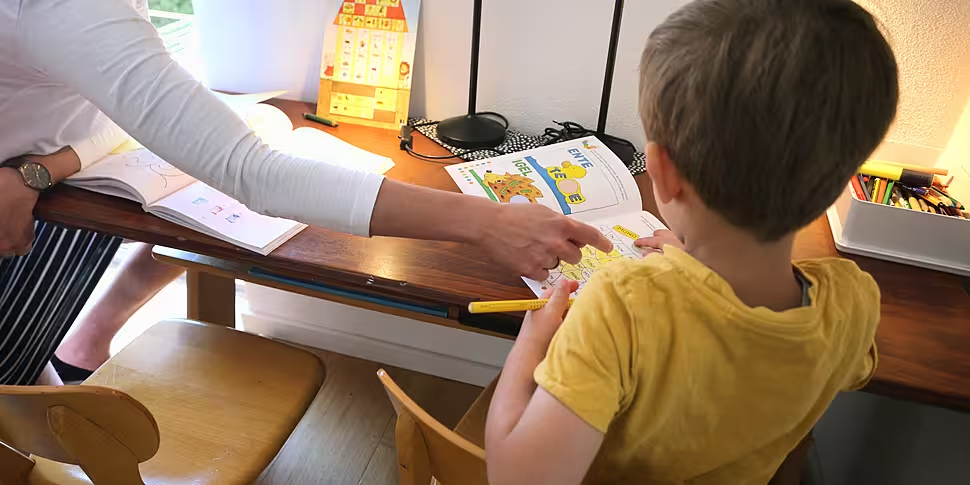On this week's 'Parenting' segment on the Moncrieff show, one listener sought advice about how to maintain a connection with his kids after an acrimonious separation.
Joanna Fortune, psychotherapist specialising in Child & Adult Psychotherapy, joined Moncrieff to answer this and other listeners' questions.
The question:
“I separated from my partner a few years ago and we have three children together.
“Unfortunately, the situation is very acrimonious and I feel like I’m being left out of the parenting of my children.
“Even more worryingly, I’m losing the connection to my children, in particular the eldest.
“Does Joanna have any advice on maintaining the relationship with the children when the parents are separated and it's fraught?”
Joanna’s response:
“I can sit here and advocate for parents to focus on the one thing you have in common - which is the best interests of your children.
“I can say all of that, of course, but in reality this type of scenario where personal hurts, personal anger and, ultimately acrimony, are what dominate with each parent, then that does play out in all relational connections - including the parent-child relationship.
“Because children do look to their parents for emotional queues at all times… So it is very difficult for everyone involved.
“But also you’d be some kind of superhuman if you were like, ‘I’m managing to contain all of that rage and frustration and the children aren’t seeing any of it!’
“You’re either superhuman or kidding yourself because actually they pick things up. Those non verbal [queues], the sighs, the eye contact, the facial reactions that we all have, those microaggressions that we have. Children are very clued into that.
“When you say you’re being left out of the parenting of your children, I’m going to assume you’ve had legal advice and, if not, to pursue that.
“What are your guardianship rights around the children? Make sure that the school have your contact details and communicate everything twice so you are certainly in the loop.
“But I think that’s maybe referring to a broader sense than just that, that it’s the day to day parenting of the children as well.
“I think focus on the connection and I just want to break that down a little bit because if you can really invest in knowing what the children are doing when they’re not with you… Their general interests, what interests them - be interested in that; their hobbies, that they go swimming on a Tuesday and whatever on a Wednesday.
“And when you see them Thursday you can, ‘How was swimming on Tuesday?’ So they know that you’re actively informed in what they’re doing.
“And again, I’m making an assumption, there is some kind of a routine that you are privy to around that.
“Be curious about, ‘Is there a birthday party coming up?’ Really focus on not what you’re missing out on because of the acrimonious separation but on the connection you can and do have with the children on the minutiae of their lives.
“The little details - ‘What do you like playing with?’ Small things matter to children and don’t underestimate those.”
She added:
“Make sure that you’re playing with them and I don’t mean planning expensive, intricate outings for the time they’re with you. Simply being at home with you, hanging out can mean a whole lot to children.
“So simple play-based activities and be fully present with them.”
She continued:
“Write cards because again I don’t know how often you see them but you can post them to the children and again it’s a way of them knowing you’re thinking of them and staying connected - sending messages that don’t require a response.
“So even if that’s sending a text or a video message or a voice note or a physical card it’s not something that is dependent on them answering you but they’re received that message from you.
“If mediation hasn’t been done around this I would certainly urge [but] mediation only works where both sides are willing to be there and work something out for a shared goal.
“But be the parent that they might not hear about; be the version of you that challenges what they might hear because children are smart and through repeated experience of you turning up and being engaged and interested, that’s the version of you they internalise.
“That’s the one they trust and that’s the connection you’re investing in.”
Main image: Parent and child. Picture by: Karl-Josef Hildenbrand/dpa









